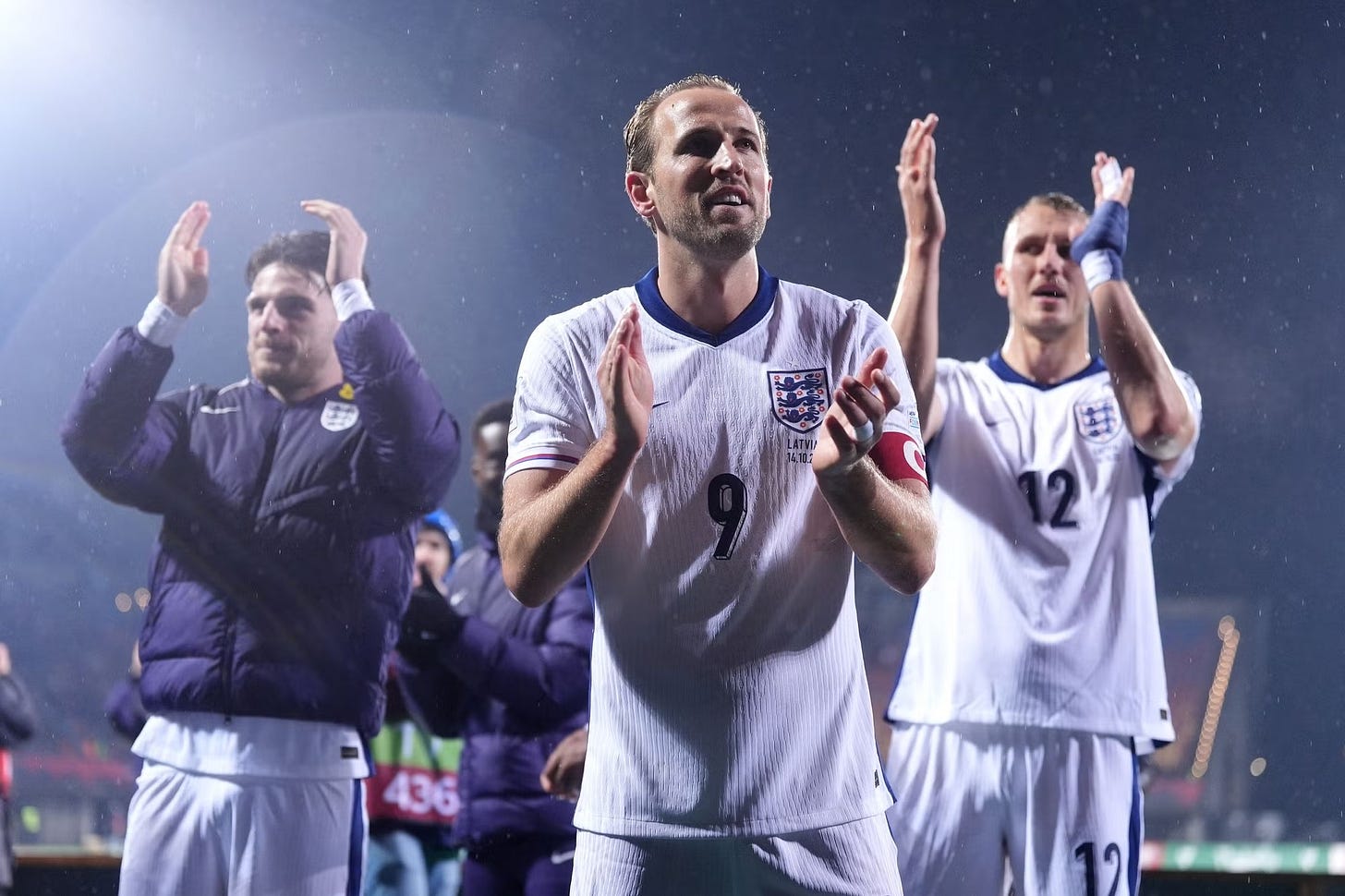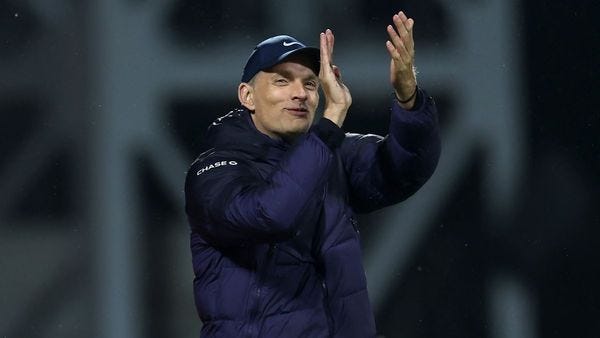England’s Easy Ride, Tuchel’s Tough Lessons
England cruised to World Cup qualification under Thomas Tuchel, but the real test is only beginning. Can this new-look side finally turn comfort into conviction?
England Qualify with Ease
England’s path to the World Cup could hardly have been smoother. Six matches, six wins, eighteen goals scored, none conceded. It was qualification at a canter, completed without ever truly being tested. Even when the performance levels dipped, the result never seemed in doubt. There was no drama, no last-minute panic, and no sense of vulnerability.
This kind of dominance has become routine for England. The difference this time is that the results felt inevitable from start to finish. The opposition simply could not get near them. Even when the tempo slowed or the creativity dried up, the defensive structure and organisation carried them through. England were efficient rather than spectacular, but that in itself is a sign of progress.
What made the campaign stand out, though, was not the ease of qualification, but the tone of authority with which it was achieved. Thomas Tuchel, in his first qualification campaign as England manager, has reshaped the team’s mentality. He has replaced patience with precision, comfort with control, and familiarity with fierce competition.
The Tuchel Effect
When Tuchel took over from Gareth Southgate, he inherited a squad full of talent and expectation. England had stability, but they needed an edge. Tuchel’s arrival has provided exactly that. His methods are detailed, his standards uncompromising, and his message unmistakable. No one is guaranteed a place.
He has made England more assertive in and out of possession. The pressing starts earlier, the tempo is quicker, and the gaps between lines are tighter. Players are asked to play with intensity and intelligence. Mistakes are corrected swiftly, and lapses in concentration are not tolerated.
Defensively, the impact has been immediate. England’s clean-sheet record speaks volumes. The back line, whether configured as a three or four, looks disciplined and calm. The midfield shield in front of them, often led by Declan Rice, has been imperious. The balance between aggression and composure feels finely tuned.
Tuchel’s greatest success so far has been instilling belief without breeding arrogance. His players know they are good enough, but they are also aware that qualification is only the beginning. There is no sense of celebration, only quiet determination to improve.
Tactical Shifts and Selection Statements
Tuchel has already shown that he is not afraid to make tough decisions. Big names have been rotated, rested, or dropped entirely when form has dipped. Others have been rewarded for their club displays and attitude. It has created a healthy tension within the squad.
His tactical tweaks have been subtle but effective. England now switch systems seamlessly between games, adapting to the strengths of their opponents. The full-backs push high and wide, the midfield pivots intelligently, and the front three are encouraged to interchange constantly. The team looks less predictable and more flexible.
Importantly, Tuchel has shown a willingness to trust younger players. The message is clear: if you are performing, you play. England’s depth is improving as a result, and the atmosphere around the camp feels refreshed.
Complacency Not Allowed
For all the dominance, Tuchel has been quick to guard against complacency. He has publicly demanded more intensity and sharper decision-making, even after comfortable wins. Following a flat display away to Andorra, he criticised the lack of urgency and challenged his players to treat every game like a knockout.
That mentality marks a major departure from what came before. Southgate’s teams were often praised for composure and control, but sometimes lacked bite. Tuchel has added that bite back. England no longer play with fear or hesitation. They are learning to be relentless.
It also helps that Tuchel has brought a new energy to his backroom staff. Training sessions are short, sharp, and meticulously planned. Every drill has a purpose, every pattern of play is rehearsed. The attention to detail has been noticeable, and it is beginning to show in the performances.
Can England Turn Dominance into Glory?
So what can supporters expect next summer when the World Cup begins? Realistically, the target is clear. Anything less than a semi-final would be viewed as a failure. England have the squad depth, tactical clarity, and experience to challenge the best. The question is whether they can handle the heat when it matters most.
Tuchel has been careful not to let expectation spiral. He has described England as an outsider among the favourites, reminding everyone that past tournaments have been defined by fine margins. His words carry weight. England’s record in knockout matches remains mixed, and Tuchel knows that dominance in qualifiers means nothing once the real tests arrive.
There are reasons for optimism. The defensive solidity that carried England through qualifying gives them a foundation few teams can match. In midfield, Rice and Bellingham can provide both energy and control. Further forward, the creativity of Foden, Saka, and Palmer adds flair. With Harry Kane leading the line, England have a proven match-winner.
The challenge lies in rhythm and variety. At times, England’s attacking play has felt too reliant on Kane’s movement. They need more runners from midfield and greater unpredictability in the final third. Tuchel’s next task is to ensure that his side can win games in multiple ways, not just through patience and possession.
Mental Strength and the Road Ahead
For all the tactical discussion, tournaments are often decided by mentality. England have stumbled in the past not because of quality, but because of nerves. Penalties, late goals, and fine margins have haunted them. Tuchel’s task is to remove that psychological barrier. His experience in high-pressure club finals could make the difference.
He has already started to address it by demanding accountability. Players are encouraged to take responsibility in key moments rather than deferring to others. Mistakes are discussed openly, not hidden. The mood around the camp feels more businesslike than ever.
If Tuchel can marry that mental resilience with tactical control, England will be a formidable proposition. They have a spine strong enough to compete with anyone and a manager unafraid of making bold calls. What they need now is to translate the comfort of qualification into conviction when the stakes rise.
Conclusion
England have qualified at a canter, barely breaking sweat along the way. It has been dominant, disciplined, and at times even dull in its predictability. But that is no bad thing. It suggests maturity, not complacency.
Tuchel has reshaped the culture and recalibrated expectations. The real story begins next summer, when the margins shrink and the pressure intensifies. England look better prepared than ever before, both physically and mentally.
The easy part is over. Now comes the challenge that has haunted generations…to turn potential into proof.




Great read. I think it’s really obvious to see that Tuchel’s ideas and philosophy are beginning to bear fruit over the last three games. There’s a greater ruthlessness and intensity about the team.
My fear is that we’re looking at ‘right manager, wrong time’ - France and Spain look phenomenal right now. Perhaps we’ll have the craft and efficiency to beat them, but the players need to believe it’s possible with every fibre of their being.